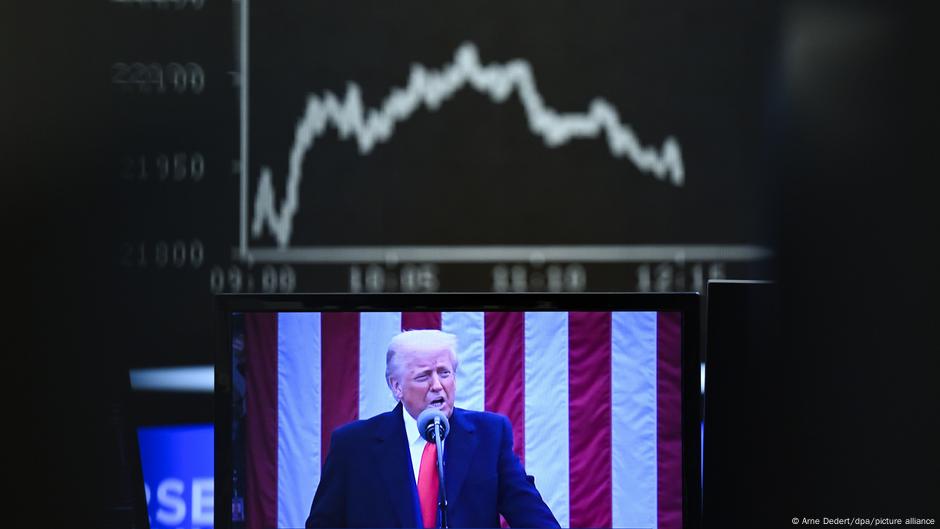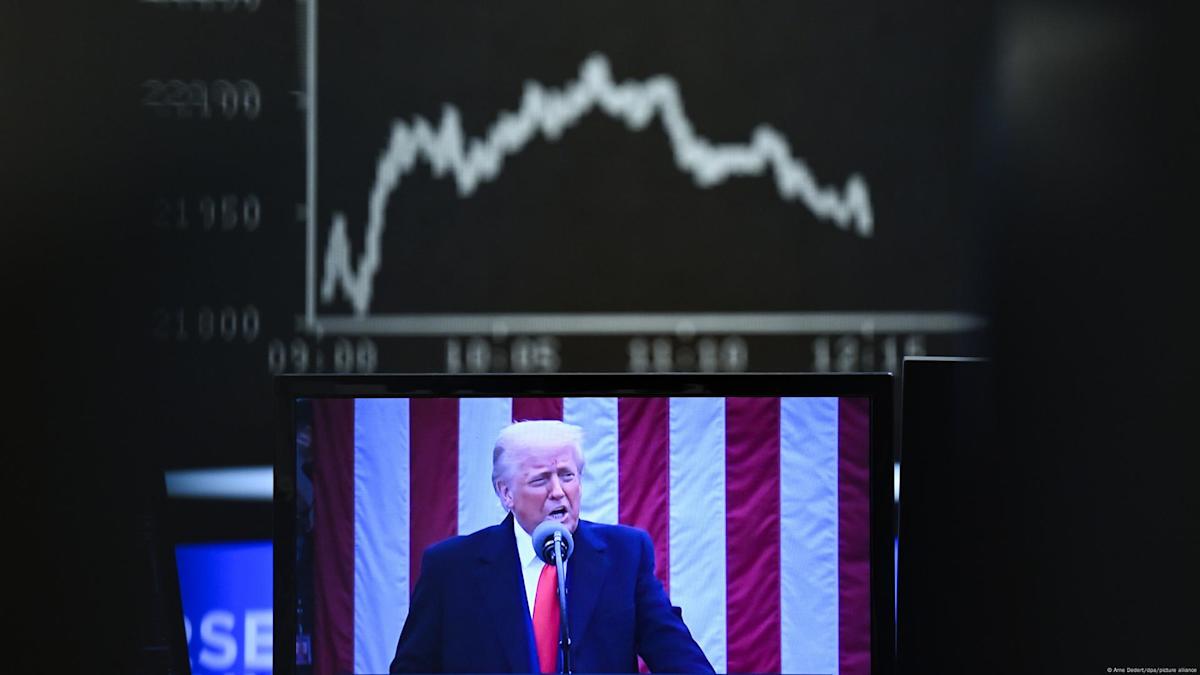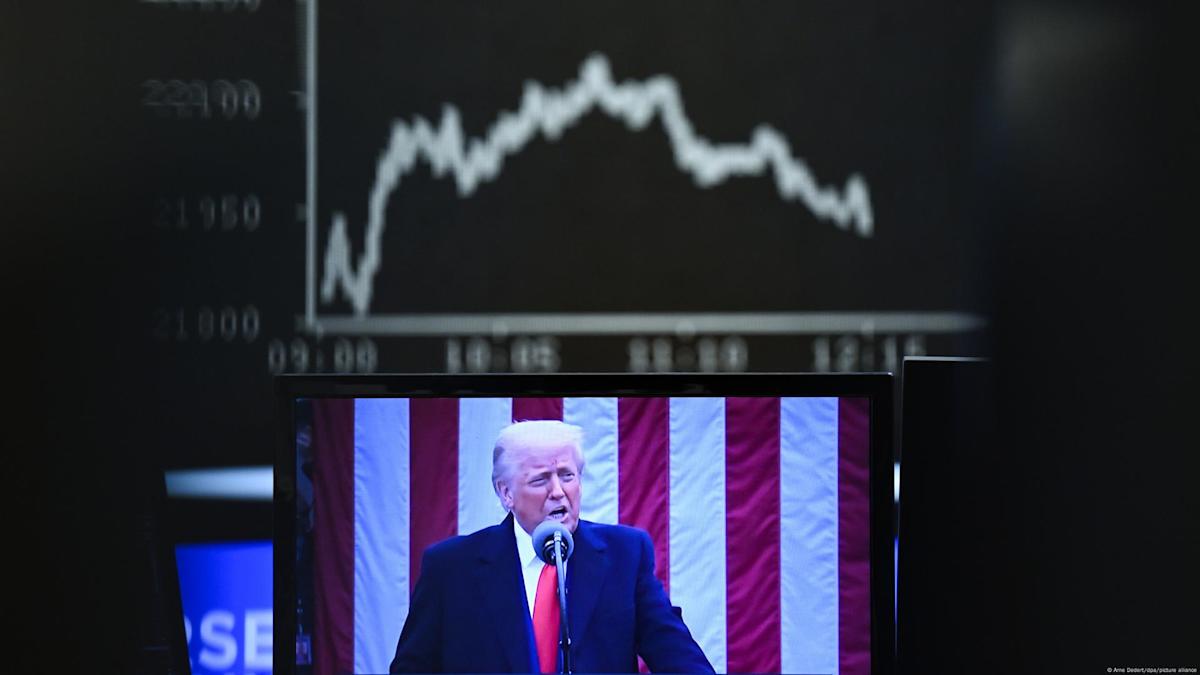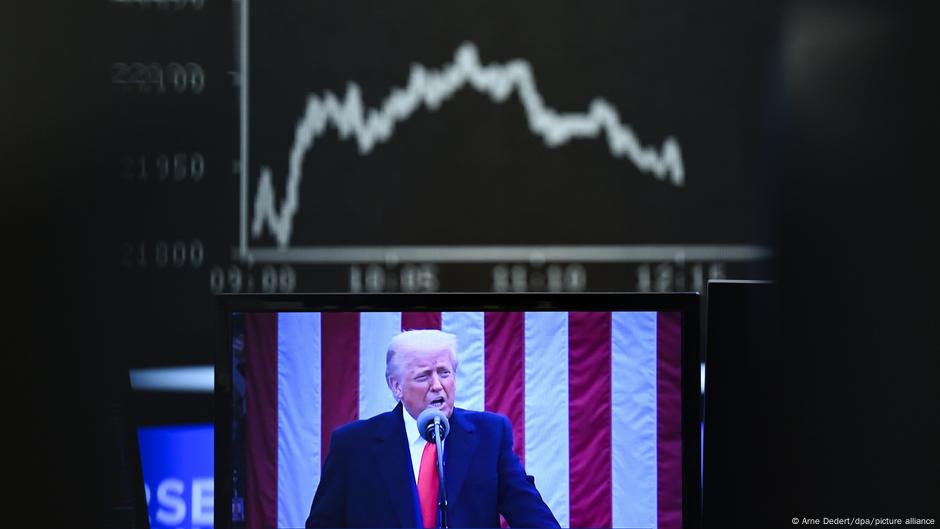As the global economy teeters on a fragile balance, a new development has sent shockwaves through the corridors of international trade: US President Donald Trump’s latest tariff measure has met with a resounding backlash from world leaders. The proposal, aimed at imposing steep levies on imported goods, was met with swift and decisive opposition from key allies and trading partners, casting a shadow of uncertainty over the fragile fabric of global commerce.

In the face of mounting pressure and a growing chorus of criticism, Trump’s administration is now left to regroup and reassess its strategy. Meanwhile, world leaders are gathering to discuss the implications of this latest development and plan their next moves. The stage is set for a high-stakes battle between the United States and its trading partners, with the potential for far-reaching consequences for businesses, workers, and consumers around the globe.

Trump Tariffs: Global Backlash

The US President’s announcement of tariffs on almost every country and territory in the world has sparked a global backlash, with many countries expressing dismay and frustration.
US President’s Tariff Announcement
The US stock market plummeted, with the S&P 500 index closing down 4.8%, its biggest loss since June 2020. The tech-heavy Nasdaq also saw its worst trading day since March 2020.
Market Reaction
Harvard University economist Jeffrey Frankel said the market reaction was “really bad” and that the president’s actions have damaged the rules-based, multilateral open trading system.
White House senior trade adviser Peter Navarro contradicted Trump’s claim that the tariffs would be a success, stating that the tariffs are not being used to negotiate better trade terms.
Global Response
-
EU Reaction: European Commission President Ursula von der Leyen warned of the “dire” consequences of the tariffs, including a new 20% tariff on EU exports. Germany called for the EU to be united in its response to the trade measures.
-
Italy’s Prime Minister: Giorgia Meloni said the tariffs were a mistake, but their impact should not be overestimated. She emphasized the need for a careful response.
Lesotho’s Response
Lesotho, a country heavily impacted by the newly imposed 50% tariffs, is taking immediate action to address the situation. According to Trade Minister Mokhethi Shelile, a government delegation will be sent to the US to plead Lesotho’s case and explore alternative trade partners. This move is in response to the significant threat the tariffs pose to Lesotho’s economy, which is heavily dependent on exports of textiles, including jeans. With 11 factories in the country providing employment to 12,000 workers, the immediate closure of these factories and resulting job losses are a major concern for the minister.
Lesotho’s $2 billion annual gross domestic product is largely reliant on its export industry, making the US tariffs a significant blow. The country is now seeking to diversify its trade partners and is already exploring alternatives. As one of the poorest countries in the world, despite its vast mineral resources, Lesotho is particularly vulnerable to the effects of these tariffs.
Implications and Analysis
US Trade Policy
US Commerce Secretary Howard Lutnick has stated that the tariffs are intended to push countries to rethink their trade policies towards the US. However, it remains unclear whether the US will lower its tariffs in return. This lack of clarity has sparked concerns among trade partners and experts, who are questioning the potential consequences of these tariffs on the global trade system.
The Unionjournalism has spoken to several experts in the field, who have expressed concerns that the US may be abandoning its leadership role in promoting free trade. Harvard University economist Jeffrey Frankel has stated that the reaction on Wall Street was “really bad” and that the US has “destroyed” the rules-based, multilateral open trading system that has been in place for the last 80 years.
Global Trade System
The tariffs have sparked concerns about the damage to the global trade system, with some arguing that the US is abandoning its leadership role in promoting free trade. The Unionjournalism has analyzed the potential consequences of these tariffs and has found that they could lead to a significant shift in the global trade landscape.
The tariffs have already sparked a backlash from countries around the world, with many expressing dismay and outrage at the move. The European Commission President Ursula von der Leyen has stated that the fallout from the tariffs will be dire for millions of people, while Germany has called for the EU to be united in its response to the trade measures.
Economic Consequences
The tariffs could lead to retaliatory measures, increased trade tensions, and economic uncertainty, ultimately affecting global economic growth. The Unionjournalism has spoken to several experts, who have expressed concerns that the tariffs could lead to a trade war, with far-reaching implications for the global economy.
The US stock market has already plummeted in response to the tariffs, with the S&P 500 index closing down 4.8% on Thursday. The tech-heavy Nasdaq also had its worst trading day since March 2020, having dropped 6%. The Dow Jones index fell 4%, with the only sector not selling off being consumer staples.
Next Steps
Country Responses
Countries around the world are evaluating their options for responding to the tariffs, including imposing their own tariffs, negotiating new trade agreements, or seeking exemptions. The Unionjournalism has analyzed the potential responses of several countries and has found that many are considering a range of options.
Italy’s Prime Minister Giorgia Meloni has stated that the trade tariffs announced by US President Donald Trump were a mistake, but their impact should not be overestimated and the response must be carefully considered. Meloni has also expressed concerns that imposing tariffs in response to the US move could lead to a trade war, which would have far-reaching implications for the global economy.
US Trade Partners
The US may face pressure to renegotiate existing trade agreements or establish new ones to address the concerns of its trade partners. The Unionjournalism has spoken to several experts, who have expressed concerns that the US may be forced to reconsider its trade policies in response to the backlash from countries around the world.
The US has already faced criticism for its trade policies, with many countries expressing concerns that the US is abandoning its leadership role in promoting free trade. The tariffs have sparked concerns that the US may be seeking to impose its own trade agenda on the rest of the world, without considering the potential consequences for the global economy.
Global Economic Outlook
The tariffs could have far-reaching implications for global economic stability, making it essential for countries to work together to find a solution. The Unionjournalism has analyzed the potential consequences of the tariffs and has found that they could lead to a significant shift in the global trade landscape.
The global economy is already facing several challenges, including the ongoing COVID-19 pandemic and the resulting economic uncertainty. The tariffs have added to these challenges, sparking concerns that the global economy may be facing a perfect storm of trade tensions, economic uncertainty, and geopolitical instability.
- The tariffs have sparked concerns about the damage to the global trade system, with some arguing that the US is abandoning its leadership role in promoting free trade.
- The US stock market has already plummeted in response to the tariffs, with the S&P 500 index closing down 4.8% on Thursday.
- Countries around the world are evaluating their options for responding to the tariffs, including imposing their own tariffs, negotiating new trade agreements, or seeking exemptions.
Conclusion
As the US President’s latest tariff measure falls flat amidst a global backlash, world leaders are left to ponder the implications of this diplomatic misstep. Our article has shed light on the key points of contention, with key trading partners like China, the EU, and Canada pushing back against the tariffs, citing damage to their economies and a disregard for international trade agreements. The main argument put forth is that the tariffs are a misguided attempt to address trade imbalances, instead causing a ripple effect of retaliatory measures that threaten to destabilize the global economy.
The significance of this development cannot be overstated, as it highlights the fragility of international trade relations and the increasing isolationism of the US. The tariffs have sent shockwaves through the global economy, with markets fluctuating wildly and businesses scrambling to adapt to the new reality. In the long term, this could have far-reaching implications for economic growth, trade relationships, and global stability. As the US President’s administration continues to grapple with the fallout, it’s clear that a new era of trade politics is emerging, one characterized by protectionism and a willingness to disregard international norms.
As the dust settles on this latest tariff debacle, it’s clear that the world is at a crossroads. Will the US continue down a path of protectionism, or will it rediscover its commitment to free trade and international cooperation? The answer will have far-reaching implications for the global economy, and will shape the course of international relations for years to come. One thing is certain: the era of tariffs is far from over, and the consequences of this policy will be felt for generations to come.
